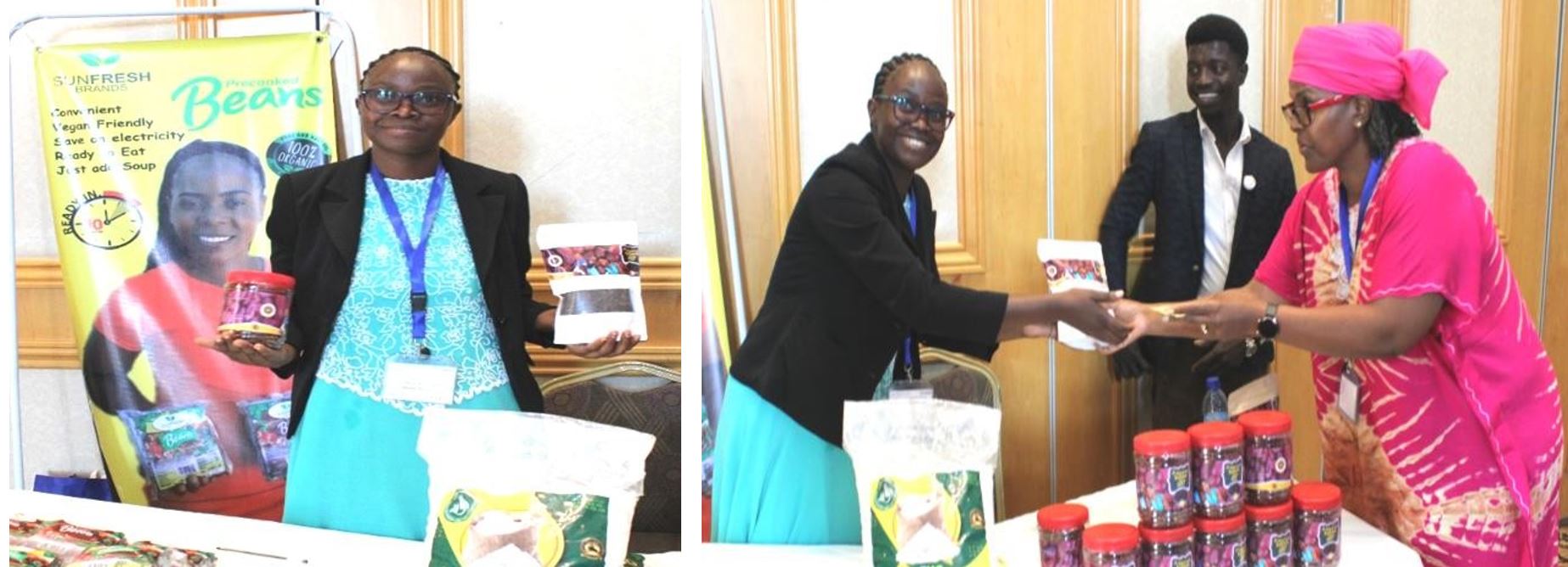By Yohane Chideya, Justice Munthali, Robert Fungo, Wilson Nkhata, Eliud Birachi, Jean Claude Rubyogo
Martha Chizule is always agitated every time she learns about statistics of Malawians that are suffering and dying of cardiovascular disease, type 2 diabetes and some cancers.
A 2023 study on chronic diseases in Malawi, for instance, found that the rates of heart disease and diabetes are at 9% and 6% respectively, with the prevalence hypertension estimated to be at 16.7%.
On top of that, the traditional category of non-communicable ailments are said to be on the rise, with the disease burden significantly outpacing funding.
This is not her only worry though. Rising cases of malnutrition among children in Malawi have also been bothersome to her, with studies pointing out that children suffering from iron-deficiency anemia have poorer cognition while growing up.
What irks the young Malawian Nutritionist most is that despite these burdens being preventable, little is being done in as far as devising tangible ways to alleviate the status quo is concerned.
The 37-year-old is convinced that advocating for the consumption of bean-based food products can assist in alleviating these life-threatening situations, due to their contribution of bioactive compounds such as flavonoids, tannins and phenolic to the diet.
“Emerging issue of chronic diseases in Malawi make me sad. Most of them are linked to food and nutrition. Beans are good products that can assist in preventing chronic infections if consumed in the long run,” she says.
Studies about improving quality and safety of bean-based products through market-led and multi- stakeholder models in Malawi and Zambia, found that adding value to beans through processing has potential to improve consumption and utilization.
Among the two neighboring nations, Zambia was found to have more traded volumes of bean- based food products in regular markets than Malawi.
However, Chizule is convinced there is potential to turn Malawi’s situation around, as she eyes a venture in bean-based food production.

Figure 1: CHIZULE (in blue dress): Aspiring to venture into bean food production – Picture by Yohane Chideya
Her passion and driving force
Before commencing her master’s in human nutrition from Lilongwe University of Agriculture and Natural Resources (LUANAR), Chizule had already developed a strong passion for nutrition.
The Blantyre City resident is glad that her education matched exactly what she wanted to do since her childhood, and she vows to take a road despised by many.
Through a project titled “Improving income and nutrition security through development and commercialization of consumer-preferred processed legume-based products in Malawi and Zambia,” implemented by the Alliance of Bioversity International and the International Center for Tropical Agriculture (The Alliance), her desire to venture into food processing was cemented.
Under the initiative, which is funded by the United States Agency for International Development (USAID) through Feed the Future Innovation Lab for Legumes Systems Research at Michigan State University, Chizule was sponsored to conduct related research as partial fulfillment of her studies in Human Nutrition.
During her research, she discovered that there are very few companies in Malawi that are processing food from beans, a discovery that awakened her inspiration to be part of the solution to improve the situation.
“Thanks to the project, I had the chance to go into state-of-the-art laboratories to see different chemical processes associated with effective food processing. With this knowledge I feel have what it takes to venture into full bean food and beverage making,” she explains.
Products on the lookout
Over 80% of farmers in Malawi grow bean alongside other cash crops. While the legume is eaten as immature green pods or as fully ripen (fresh or dried), Chizule feels the legumes are not being used to their full potential.
“We need to utilize them to their full potential so that consumers should have more options to choose from, keeping in mind that while others love consuming whole beans, a certain population would love to consume beans in other forms. Diversification is what matters most,” she says.
Chizule plans to go full throttle in producing bean paste targeting infants, baked beans, bean flour for porridge making, pre-cooked bean as well as traditional bean-based beverages, such as thobwa.
“Babies also need food from legumes that can supplement their nutritional needs. My dream is also to see bean-based flours flooding the markets. Soon I am looking at making a beverage or a product that can be turned into instant bean-based beverage,” she explains.

Figure 2: Pre-cooked bean Figure 3: Bean paste
Need to address socio-economic problems
Chizule feels she is well-equipped to address not only malnutrition, but also unemployment levels in Malawi, adding that with overgrowing population there is need for more processors to meet food demand.
“Now I look around and tell myself that I do not have to rely on formal employment to contribute my skills towards something good, while creating jobs for my fellow youths,” she affirms.
The project’s Principal Investigator Dr. Robert Fungo hails the initiative of scaling out processing of value-added legume-based products like precooked dehydrated beans and flour.
He also describes the importance of supplying consumers with bean products that are affordable and those that do not require cold storage.
“The intervention seeks to encourage precooked legumes in place of the dry legumes that are slow to cook and rely on costly firewood that end up emitting gases that pose risks to the environment,” writes Fungo.
Government of Malawi through the Ministry of Agriculture also attests that good nutrition forms basis for the country’s socio-economic growth and development.
Principal Secretary in the Ministry, Mr. Dixie Kampani, applauds the initiatives that have been undertaken by the Alliance in addressing concerns surrounding nutrition and food security.
“Adequate nutrition is a prerequisite for human growth and development, as it plays an important role in one’s physical and intellectual development and consequentially work productivity,” he said this during the closure meeting of the initiatives at BICC in Lilongwe.

Figure 4: KAMPANI – Nutrition is a prerequisite for human growth and development – Picture by Yohane Chideya
